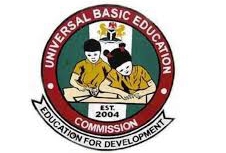BY ABUBAKAR YUSUF
The Renewed desire by the state governors under the leadership of the Nigeria Governors Forum NGF led by the Kwara State Governor , Abdulrahman Abdulfatah to partner with the Universal Basic Education Commission UBEC with a view to resolving the lingering issues of unassessed yearly matching grants, from the federal government to the tune of over 50 Billion is nearing resolution, to better the lot of Basic Education in the country.
This was a fallout of frequent clamour by the leadership of UBEC in any public fora of the inability of states to adhere to payment of counterpart funding, to enable them assess the already available fund provided by the federal government.
The latest was during the visit of members of the House of Representatives on oversight function to the commission, were the Executive Secretary and Chief Executive officer, Dr Hamid Bobboyi reiterated the lackadaisical attitude of state governments towards assessing the yearly readily available funds , stating that in the last three years from 2020-2023 only 16 states out of the 36 states including the FCT have accessed the matching grants.
This according to the commission, are one of the factors bedeviling the smooth running and operations of Basic Education across the country.
According to the UBEC handlers, the uncooperative attitude of state governments has left the burden of running Basic Education in Nigerian only in the hands of the central government, a situation that does not augur well not only for the development of the foundation level of Education, but learning will not take place as expected.
Sixteen states of the federation out of the 36 states and FCT was less than half of the states across nation, a situation the Executive Secretary, called for improvement and renewed vigour in line with the Renewed Hope Agenda of President Tinubu.
It will be uncalled for the state governments to continue to display apathy towards the development of Basic Education through their counterpart funding, that will translate to more attention to primary and Junior Secondary Schools across Nigeria.
In the last five years, the clamour by the Universal Basic Education Commission UBEC of the non assessibility of counterpart funding has become alarming and embarrassing both at the sub national level and at other fora, that led to the plan convening of meeting between the state governors of 36 states under the umbrella of Nigerian Governors Forum NGF in few days to come , at the instance of 36 governors and the Federal Capital Territory FCT.
The planned meeting with expected positive results will reduce the burden of funding not only on the federal government, reduce Out of school children OOSC, Infrastructural development and decay, manpower development and the need to provide working tools along with capacity building and development.
With the envisaged resolution of the need to access the matching grants by state governors, the amendment of the obsolete act, provision of more funding as advocated by some states governors and the efforts of both local and foreign donors , supports from countries, the debilitating effects despite government at the federal level concerted efforts towards advancing Basic Education will be improved.
Already the Niger State Governor , Umar Bago has kicked against the 80B subsidy for the 2024 Hajj , insisting that such funds should be channel to UBEC to expand the scope of attention granted to the development of Basic Education in the country.
Some stakeholders and administrators has also supported the laudable programs of the management of the Universal Basic Education Commission UBEC, under the leadership of Dr Hamid Bobboyi with a view to taking primary and post primary school in Nigeria to greater heights.
What UBEC and the sub national headed by the Nigeria Governors Forum NGF under the chairmanship of Governor Abdulrahman Abdulfatah of Kwara State is to arrive on the same page on the issue of Basic Education funding, rather than deferring at any public fora.
With the action of the NGF, it is obvious that the management of Universal Basic Education Commission UBEC has been vindicated for all its clamour all this years on the non assessment of most states governors of the counterpart and readily available funds provided yearly by the federal government by the state government, due to the refusal of state government and FCT to provide their own side of funds and agreement.
The sad development when improved will reduce to the barest minimum, the growing population of out of school children OOSC, Infrastructural decay, lack of adequate manpower, including training and retraining.
The new clamour of NGF and UBEC will also encourage the Federal Government, National Assembly into accepting the idea of increasing and allocating more funds as well as states assessing fully on a yearly basis the readily available matching grants.
The insistence and patriotic stance of the leadership of the commission is gradually paying off, towards resolving the decades impasse militating against foundation Education and learners triumph.
ABUBAKAR YUSUF Writes on yus.abubakar@gmail.com.











